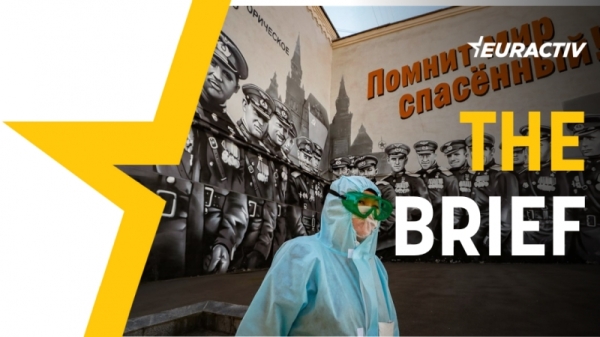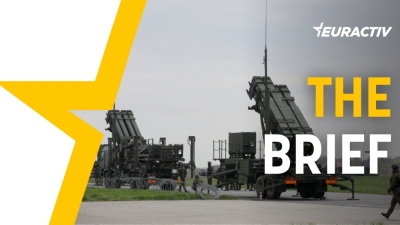The Brief — A frivolous war anniversary speculation

One year after the start of the brutal Russian aggression against Ukraine, pundits worldwide are churning out analyses and commentaries zeroing in on the multiple hows and whys. But the question that puzzles the writer of this Brief is: Why didn’t Vladimir Putin attack while Donald Trump was in the White House?
With hindsight, many agree that the aggression was going to happen because that is consistent with a narrative Putin had developed in several key speeches over many years. (I tried to explain this narrative on the day of the aggression and in a publication just before.)
The mystery remains the timing. Why 24.02.2022?
Some say Putin is obsessed with numerology and was going to give the attack order on 22.02.22, just as he had attacked Georgia on 08.08.08, but something distracted him. What could this have been?
On 19 February, US President Joe Biden said Putin had decided to attack. It is possible that Putin was going to attack already on 20 February but Western powers derailed this with some last-ditch diplomacy.
On 20 February, France’s Emmanuel Macron and Putin spoke on the phone. On the same day, Biden and Putin even agreed to hold a summit – on condition that Russia doesn’t attack Ukraine. In the end, he did attack, but four days later.
But he bigger question is why Putin assaulted Ukraine only in 2022, when he had all the time from 2017 to 2021 when Trump, seen by many as either a Russian asset or, at best, a useful idiot, was in charge?
Today Trump says he would end the war in Ukraine in 24 hours if he were in charge because he would obviously abandon support for Kyiv and accept all Russian demands.
If Trump had been at the wheel, the US would have offered little substantial support to Kyiv, which would have also discouraged many of the NATO allies. As a result, Russia would have won its war by now and already be looking toward its next targets.
It is a speculation, but Putin may have hoped that Trump would be re-elected, and Russian trolls certainly did their bit to make that happen, according to US intelligence.
As another, albeit curious, explanation, there is ample evidence of Putin’s fear of germs, which may have played a part in his strategic planning. 2020 was the year when COVID-19 spread across Europe and Putin almost disappeared from sight. We never found out where he was and what he did.
Across the EU, COVID restrictions were scrapped in February 2022, just after Putin launched his war. In the media, war reports simply replaced the COVID chronicles.
We can take some liberty and venture a conclusion (controversial though it may sound) that COVID may have saved Ukraine, and peace in Europe, because the pandemic, or rather the fear of the germs, prevented Putin from attacking Ukraine in 2020 when Trump was in charge.
Let’s not forget that back in 2020, Trump had proposed reintegrating Russia into G8, while Macron was also defending dialogue with Russia, and Germany was offended at the very idea of US sanctions against Nord Stream 2 pipeline.
Had it not been for COVID, stars would have probably aligned in 2020 for Putin to launch the invasion of Ukraine.
These presumptions may appear frivolous, I agree. But when we lack information – and the Kremlin has always been a very difficult place to navigate for information – we have to make presumptions.
What matters is that exactly one year after the aggression, Kyiv is hosting Joe Biden and not Vladimir Putin.
The Roundup
The Kremlin said on Monday (20 February) that Russia’s relations with Moldova were very tense and it accused Moldovan leaders of pursuing an anti-Russian agenda, one week after Chisinau said it had foiled a Russian coup attempt.
US President Joe Biden arrived on a surprise visit to Ukraine on Monday (20 February), a major show of support ahead of the first anniversary of Russia’s invasion, preceded by Moscow’s launching of a massive assault across frontlines in the east.
While Brussels works on its reform of the EU’s electricity market, with backing from the likes of France and Spain, Germany is pushing to delay the overhaul until after the 2024 EU elections.
Education professionals face considerable bureaucratic hurdles and mandatory additional training to get their domestic qualifications recognised if they want to work in another member state, barriers that are worsening the EU’s skills shortage.
Washington strongly supports Sweden and Finland’s quick NATO accession given steps they have already taken, US Secretary of State Antony Blinken said on Monday (20 February), even as his Turkish counterpart stressed the need for more concrete action.
Look out for…
- Vice-President Margaritis Schinas receives President of the European Olympic Committee and the Hellenic Olympic Committee, Spyros Capralos.
- EU Commissioner Mariya Gabriel participates, in Brussels, in the 1st roundtable cultural and creative ecosystems.
- Vice-President Dubravka Suica meets with DE Minister of State for Europe, Federal Foreign Office, Anna Luehrmann.
- EU Commissioner Olivér Várhelyi in Hungary: participates in the yearly Conference of Ambassadors.
- General Affairs Council on Tuesday.



